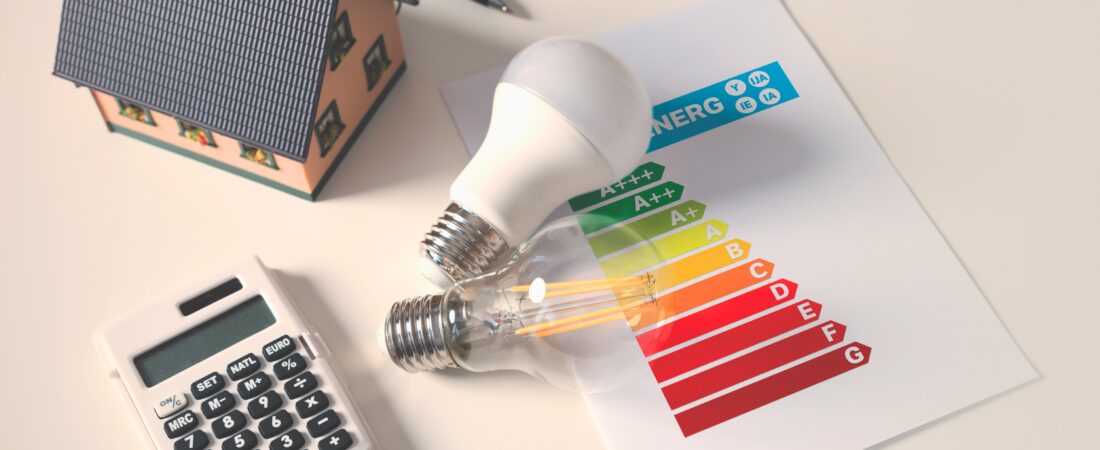Since 2008, there has been a legal requirement for landlords to have an Energy Performance Certificate (EPC) in order to sell or let a property.
In 2018, the Minimum Energy Efficiency Standard (MEES) was introduced to improve the energy efficiency of privately rented homes and buildings. Under this standard, all rental properties in England and Wales must have an EPC rating of at least ‘E’.
By April 2020, this requirement extended to all existing tenancies, not just new ones. This means that if your property has an EPC rating below ‘E’, you are not legally allowed to let it.
- Will Labour change EPC ratings?
- How can I get an EPC?
- Do I need to renew an EPC during a tenancy?
- How long does an EPC last?
- Can landlords be fined for not having EPC?
- What financial assistance is the government offering?
- When is an EPC not required?
We’ve teamed up with the best energy assessors up and down the UK to bring you great service for an incredible price. Book Your EPC Now
Will Labour change EPC ratings?
On 7th February 2025, the government launched a consultation on proposed changes to minimum energy efficiency standards and EPC requirements for rental properties.
Feedback was gathered from landlords (including leaseholders), tenants, and other relevant stakeholders.
We’ve broken down the biggest proposed changes below, and you can read the full consultation document here.
- New EPC metrics from 2026: The government is looking to introduce new metrics for EPCs that would assess how well a property retains heat (fabric performance), how efficient its heating system is (heating system efficiency), and its smart readiness.
- Higher EPC grades: One of the proposed changes is that properties must meet at least an EPC grade ‘C’ (based on the new metrics) for landlords to legally let them. This requirement would apply to new tenancies from 2028 and all tenancies by 2030.
- The cost cap for improvements: The consultation suggests that landlords may be required to invest up to £15,000 per property to meet the proposed standards. If a property still doesn’t comply after this, landlords could apply for a 10-year exemption to continue letting it.
- A lower cost cap of £10,000 is also being considered for landlords who qualify for an affordability exemption.
- Changes for HMOs: The government is exploring whether entire Houses in Multiple Occupation (HMOs) should require a valid EPC, even when renting out single rooms.
- Stronger enforcement and higher fines: Local authorities may be given more powers to enforce MEES compliance, and the maximum fine for non-compliance could increase from £5,000 to £30,000 per property, per breach.
The consultation ran for 12 weeks and closed on 2nd May 2025. The final outcomes have yet to be published and we’ll provide an update once the information is available.
Please note that, for now, these are still proposals and nothing has been finalised.
How can I get an EPC?
At OpenRent, we make obtaining an EPC straightforward and affordable. Leveraging our position as the UK’s largest letting agent, we negotiate competitive rates for our landlords.
Trust our platform to connect you with accredited assessors, ensuring compliance with EPC requirements without breaking the bank.
You might also be interested in…
- How to Conduct a Property Viewing Online
- When Will Section 21 Be Scrapped?
- 5 Mistakes Tenants Make in Their Property Enquiries (and How to Fix Them)
- What Tenants Need to Know About the Renters’ Rights Act
- 6 Most-Viewed Properties of the Month
Do I need to renew an EPC during a tenancy?
You don’t need to renew your property’s EPC if you have the same tenants in the property and you’re not making any changes to their tenancy agreement.
You only need to renew an expired EPC when you plan to market the property for new tenants, or if you want to reflect improvements you’ve made to a property that will result in a better rating.
How long does an EPC last?
An EPC lasts for 10 years, no matter how many times the property is bought, sold or let.
Can landlords be fined for not having EPC?
Local authorities hold the authority to impose fines of £500 if you fail to provide your tenant with a copy of the EPC, and up to £5,000 if you don’t have a valid EPC.
What financial assistance is the government offering?
Although boosting your EPC rating offers numerous benefits, the expenses associated with repairs and improvements can add up swiftly.
Therefore, it’s essential to explore available grants for landlords, which can alleviate some or all of the financial burden.
The government currently offers various grants, including ECO initiatives and the Great British Insulation Scheme, which can help improve your property’s EPC.
Additionally, it’s wise to consult with your local council about potential energy efficiency grants.
Put your property or room in front of the right tenants with just a few clicks. Explore Our Packages
When is an EPC not required?
If the property has a low energy rating, and the landlord believes the property cannot be improved to meet the minimum ‘E’ rating they can apply for an exemption from the MEES regulations.
Registering for an exemption is free for landlords, but as a part of this process, you must submit evidence proving the reason for the exemption.
Various types of exemptions include:
- ‘High cost’ exemption
- ‘7 year payback’ exemption
- ‘All improvements made’ exemption
- ‘Wall insulation’ exemption
- ‘Consent’ exemption
- ‘Devaluation’ exemption
- ‘New landlord’ exemption
In line with the current regulations, some properties may be exempt from EPC regulations if the cost for upgrades to meet the requirements goes beyond £3,500.



